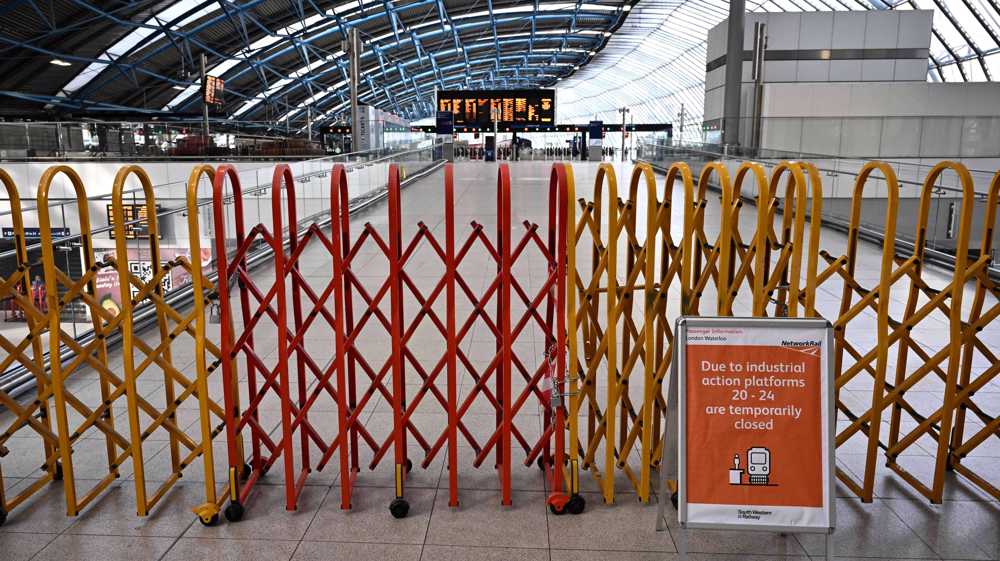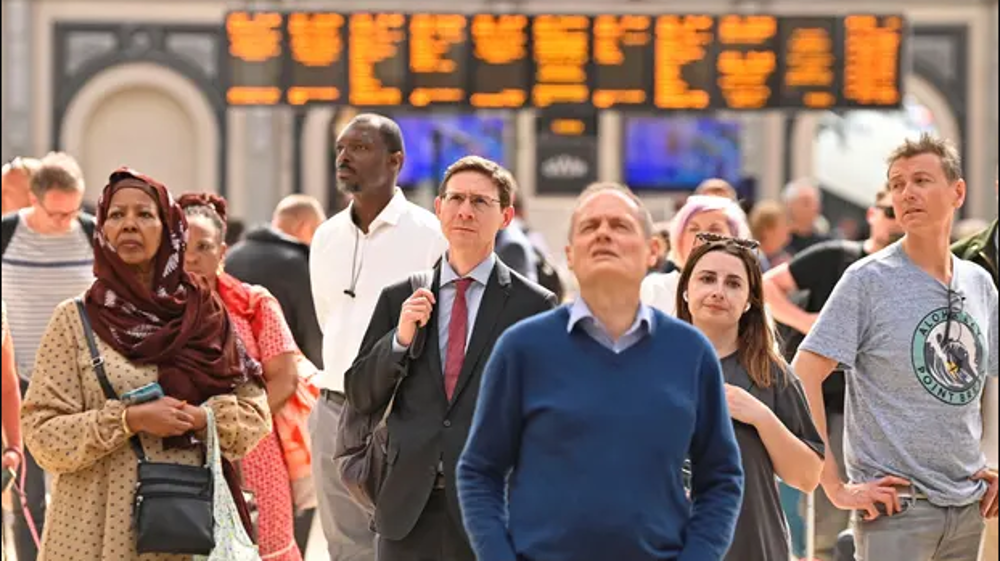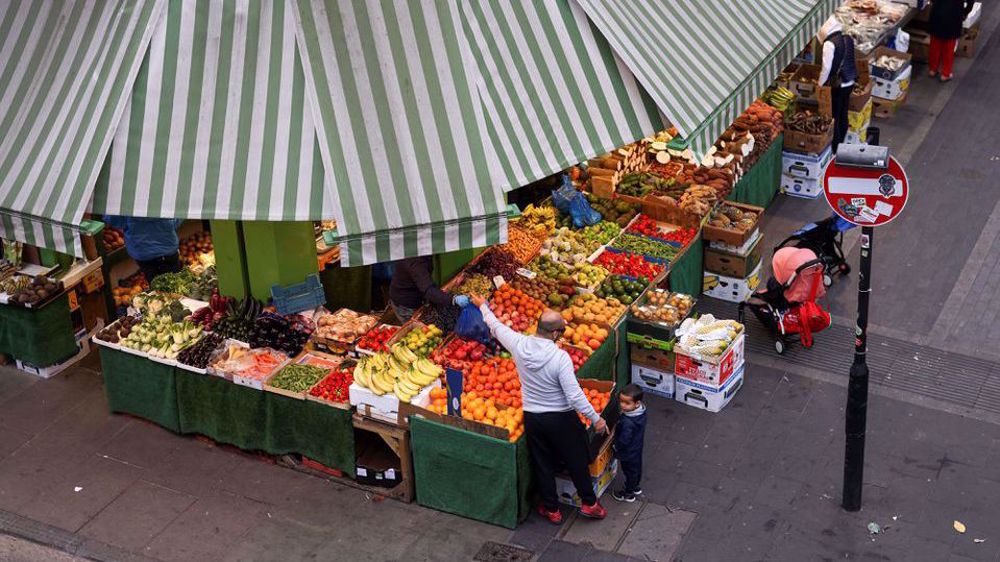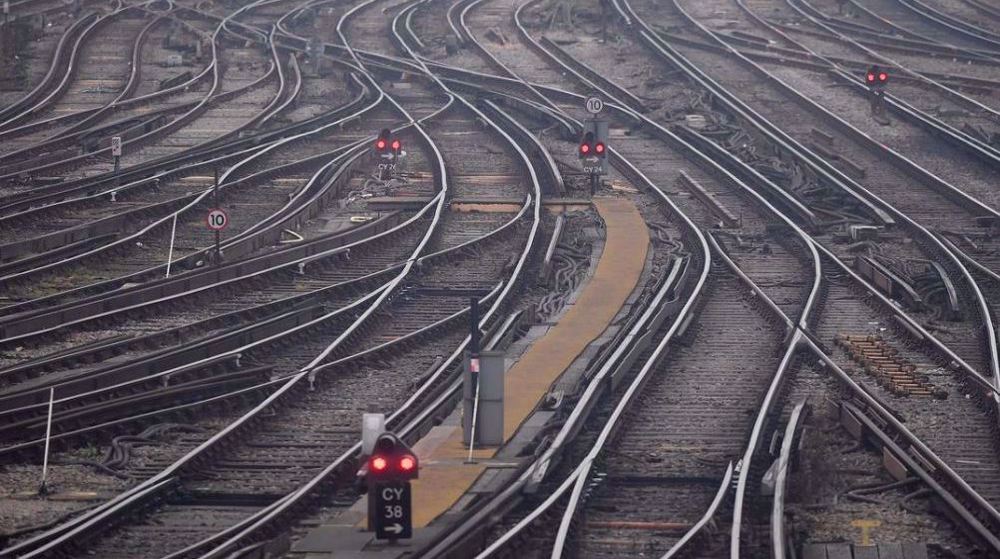UK government aims to defeat unions asking for higher pay
British Deputy Prime Minister Dominic Raab says the UK government cannot allow unions to win a battle for higher pay as it would allegedly fuel a “vicious cycle” of inflation hurting the poorest.
“We can’t allow, I’m afraid, the unions, in this very militant way that they’ve proceeded, to win this argument because it will only hurt the poorest in our society,” Raab told Sky News on Wednesday.
The National Union of Rail, Maritime and Transport Workers (RMT) called on its more than 40,000 workers and 13 train operating companies to hold a three-day national strike, as millions of passengers faced days of more chaos.
Talks in the rail dispute collapsed earlier this week as an offer from employers of 2% plus a further 1% linked to modernization reforms was rejected, but it is now understood that a 4% offer, again linked to reforms, is on the table.
Raab argued that big wage increases would help inflation stay higher for longer, eating into the value of incomes. “At one level for the union I do understand, they feel their job is to protect their workers,” he said. But it would be “totally counterproductive” for the rail industry to agree to a 7% pay increase, he added.
Business Secretary Kwasi Kwarteng has accused trade unions of “bribing” workers to go on strike ahead of a “summer of strike chaos.”
“Once again trade unions are holding the country to ransom by grinding crucial public services and businesses to a halt. The situation we are in is not sustainable,” Kwarteng said.
Meanwhile, the British government had set out planned changes to law in order to make it easier for businesses to use temporary staff to minimize the negative impacts of strikes on the public by ensuring that businesses and services can continue operating.
For example, strikes in public services such as education can often mean parents have to stay at home with their children rather than go to work, or rail sector strikes can stop commuters from getting to work or to other businesses.
“Repealing these 1970s-era restrictions will give businesses freedom to access fully skilled staff at speed, all while allowing people to get on with their lives uninterrupted to help keep the economy ticking,” Kwarteng added.
The government announced that businesses will need to ensure they hire temporary workers with the necessary skills and qualifications for the roles they are covering.
Subject to parliamentary approval, these changes are made through a statutory instrument and are set to come into force over the coming weeks and will apply across England, Scotland, and Wales.
The government has also announced that it would raise the maximum damages that courts can award against a union when strike action is found by the court to be unlawful. For the biggest unions, the maximum award will rise from 250,000 to 1 million pounds.
According to figures released by the Office for National Statistics (ONS), inflation for the month of May was the highest since March 1982.
Last week, the Bank of England also drew a gloomy picture for the future, warning that worse was to come as the current inflation was likely to remain above nine percent over the coming months before climbing to 11 percent in October, when regulated household energy bills are due to soar again.
Israeli regime strikes buildings in Lebanon’s south
Suicides among Israeli forces surge amid Gaza war
Gen. Soleimani turned threats into opportunities and fortified resistance axis
Houthi: General Soleimani thwarted US conspiracies in West Asia
Islamic Jihad prevents Israeli captive from taking own life
Pezeshkian: We will continue path of Gen. Soleimani with power
Israel forces make incursion into Lebanese town, torch homes
Israeli settlers raid al-Aqsa Mosque amid restrictions on Muslims













 This makes it easy to access the Press TV website
This makes it easy to access the Press TV website